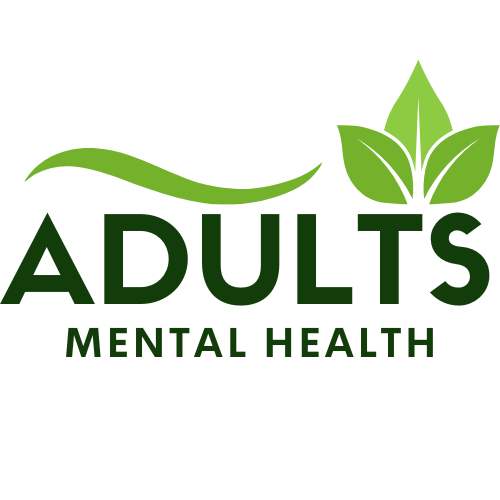Child Mental Health: Signs, Symptoms, and Support
Why Child Mental Health Matters: A Brief Introduction
Every Canadian parent wants their child to grow up happy, healthy, and confident. But what happens when you notice a change in your child’s behavior that seems unusual? Understanding child mental health, including its signs, symptoms, and support strategies, is crucial for parents, teachers, and caregivers. Mental health issues in children can be subtle or overt, and early recognition ensures timely support. This article explores key indicators, symptoms, and actionable ways to help children navigate mental health challenges, fostering emotional and social growth.
What Is Child Mental Health?
Child mental health encompasses more than the absence of mental illness—it’s about enabling children to reach their full potential. It affects how they think, feel, and act daily. A mentally healthy child can manage stress, build relationships, and make sound decisions. However, mental health challenges can stem from genetics, environment, or trauma.
Why Early Detection Matters
Early detection of mental health issues can prevent long-term consequences. According to the National Alliance on Mental Illness (NAMI), 1 in 5 children has a diagnosable mental health condition, yet only 20% receive adequate treatment. Recognizing signs early allows for prompt intervention, improving outcomes.
Mental Health Problem Signs and Symptoms in Children
Identifying mental health issues in children can be challenging, as behaviors vary by age and temperament. Below are key signs to watch for, organized by age group.
Symptoms in Toddlers (Ages 3–8)
- Frequent tantrums or irritability: While occasional meltdowns are normal during the “terrible twos,” persistent anger, sadness, or fear may signal an issue.
- Problems sleeping: Difficulty falling asleep, frequent nightmares, or excessive sleeping.
- Regression: Reverting to behaviors like bedwetting or thumb-sucking that the child has outgrown.
- Hard to concentrate: Inability to focus or follow simple instructions.
Symptoms in Older Children and Teens (Ages 9–18)
- Isolation: Withdrawing from friends, family, or activities they once enjoyed.
- Mood swings: Prolonged sadness, anxiety, or anger.
- Poor school performance: Declining grades or lack of interest in studies.
- Physical complaints: Repeated headaches or stomach aches with no medical cause.
Behavioral Red Flags
- Aggression or defiance: Acting out inappropriately for the situation.
- Self-injury: Engaging in cutting, reckless behavior, or talking about self-harm.
- Substance use: Using drugs or alcohol as a coping mechanism.
Pro Tip: Keep a journal to track your child’s behaviors, noting patterns to share with professionals for an accurate diagnosis.
Common Child Mental Health Conditions
Children can experience a range of mental health disorders. Below are some of the most common, along with their symptoms.
1. Anxiety Disorders
Children with anxiety may exhibit excessive worry, fear of separation, or panic attacks. For example, social anxiety might prevent a child from attending school.
2. Attention-Deficit/Hyperactivity Disorder (ADHD)
ADHD involves difficulty focusing, impulsive behavior, or hyperactivity inappropriate for the child’s age. Early behavioral therapy can be transformative.
3. Depression
Depressed children may appear consistently sad, fatigued, or disinterested in favorite activities. Teens may express hopelessness or mention death.
4. Autism Spectrum Disorder (ASD)
Children with ASD may struggle with social interactions, exhibit repetitive behaviors, or show sensory sensitivities. Early diagnosis allows for tailored support.
Real-World Example
Consider Sarah, a 10-year-old who stopped playing with friends and complained of stomachaches before school. Her parents noticed she became unusually quiet and lost interest in dance class. After consulting a pediatrician, they discovered Sarah had anxiety. With therapy and family support, she regained her confidence.
Ways to Support Your Child’s Mental Health
Supporting a child with mental health challenges requires patience, empathy, and self-care. Here are actionable steps:
1. Open Communication
- Establish a safe space: Ensure your child feels comfortable expressing emotions without fear of judgment.
- Be actively engaged: Listen without interrupting or dismissing their concerns.
- Ask open-ended questions: Questions like “How do you feel today?” encourage meaningful dialogue.
2. Seek Professional Help
- Pediatricians: A starting point for screenings.
- Therapists/Counselors: Specialists in child psychology can provide therapies like CBT.
- Psychiatrists: Can prescribe medication for conditions like severe depression or ADHD.
3. Foster a Supportive Environment
- Create a routine: Predictable schedules reduce anxiety.
- Promote healthy habits: Encourage balanced nutrition, exercise, and sleep.
- Monitor screen time: Excessive device use can heighten anxiety or disrupt sleep.
4. Educate Yourself and Others
Learn about child mental health from reputable sources like the American Academy of Pediatrics or NAMI. Share insights with teachers and caregivers for consistent support.
Schools and Communities
Schools play a vital role in child mental health, offering counselors, social-emotional learning programs, and peer support groups. Community resources, such as mental health clinics or nonprofits, may provide low-cost or free services.
Case Study: A School’s Impact
A California middle school implemented a mindfulness program for anxious students, resulting in a 30% reduction in behavioral issues and improved stress management.
Myths About Child Mental Health
Let’s address common misconceptions:
- Myth: “Young kids can’t have mental health problems.” Fact: Symptoms can appear as early as preschool.
- Myth: “It’s just a phase; they’ll grow out of it.” Fact: Persistent symptoms require professional evaluation.
- Myth: “Therapy is only for serious cases.” Fact: Therapy benefits children with mild symptoms, teaching lifelong coping skills.
Conclusion: Act for Your Child’s Well-Being
Understanding child mental health signs, symptoms, and support empowers parents and caregivers to act swiftly. By recognizing warning signs, fostering open communication, and seeking professional help, you can support your child’s resilience. Mental health is as critical as physical health—take the first step today.
Take Action: Noticed changes in your child’s behavior? Share your experiences in the comments or email us at support@example.com to feature your tips for other parents. Visit our parenting resources page for more information.
FAQs
- How can I recognize mental health problems in children early?
- Look for frequent irritability, social withdrawal, sleep disturbances, or unexplained physical complaints like headaches.
- How do I know if my child’s behavior is normal or problematic?
- Track behaviors over time. If they persist for weeks, disrupt daily life, or intensify, consult a pediatrician or therapist.
- Where can I find help for my child’s mental health?
- Start with your child’s pediatrician, school counselors, or local mental health clinics. Organizations like NAMI offer resources.
- Can lifestyle changes improve my child’s mental health?
- Yes! Healthy sleep, nutrition, exercise, and limited screen time can significantly boost emotional well-being.

